Review: THE GOOD SHIP ST. LOUIS at Upstream Theater
Runs at the Marcelle through November 20
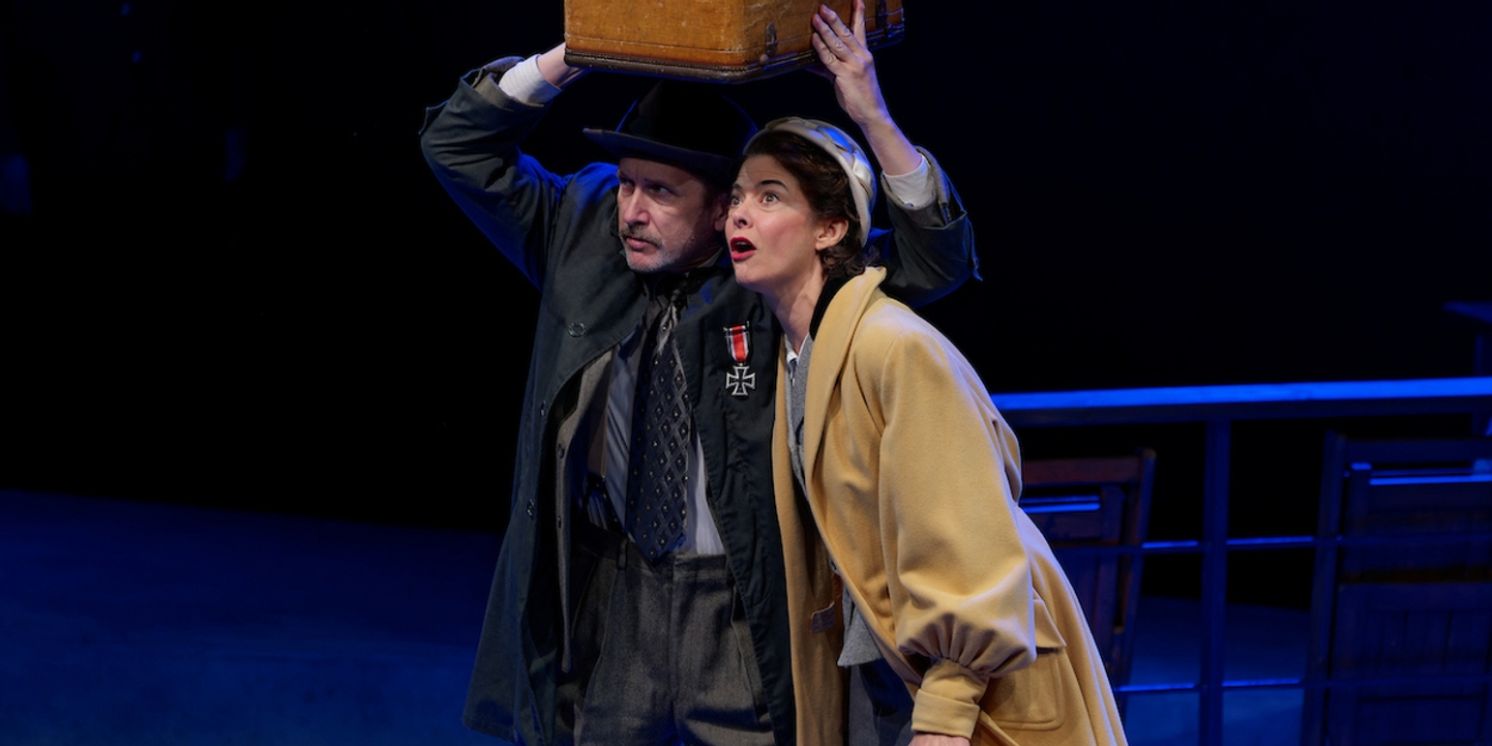
I tend not to be drawn to plays about topics that are trending in the media. They too often say merely that "some bad guys did a bad thing", and they solicit our outrage. This may be good gossip, but it's not good drama. When good guys do a bad thing--that's interesting and worthy of the stage. That hints at the real complexity of life.
So when St. Louis' Upstream Theater announced its production of a new play based on the infamous incident in 1939 where a shipload of Jewish refugees from Nazi Germany were refused entry into Cuba, the U.S., and Canada, my impulse was to avoid it. The refugee crisis, the increase in public antisemitism--these are headlines today. What, dramatically, can still be said about them?
But because of my great respect for Philip Boehm and his Upstream company I went to the show--and found it quite beautiful. Theatrical, stylish, poetic, rich.
The script is by Boehm himself, and he directs the production.
It is not didactic. There are indeed "bad guys" (the Nazi Reich), but the play is more about the eternal human question of refugees than about a particular war and particular bad guys.
The set is simplicity itself--a platform, some black railings. A projection screen at the rear. Before the show we hear a carefully curated selection of 1930's German popular music including that marvelous male close-harmony sextet the Comedian Harmonists with their hit song "Veronika". Wonderfully sweet, romantic, sentimental. So appropriate--and ironic--as these Jewish refugees set off on what some view as a "vacation voyage to freedom". The Harmonists themselves, some of whom were Jewish, had problems with the Reich.
The story begins with Susan, an Irish-American, cleaning out the attic of her dead mother, and finding mysterious Jewish memories.
Projections, like the titles of a silent film, lead us through the story. We meet the passengers--a youngish married couple, a demanding rich lady, a professor and his wife. We meet two stewards (one sweet, one Nazi) and the captain, who valiantly strives to save these doomed people.
There is a piano and two celli giving gorgeous support to the drama. (Henry Palkes is Music Director.) From time to time, when the emotional level demands, the actors drift into song--in diverse moods and languages. Some songs, rather like recitative, were newly composed by Anthony Barilla; some are more familiar: there was a bit of "Bay Mir Bistu Sheyn" (in Yiddish), then "The Horst Wessel Song", and others in various languages.
In Act Two, after the refugees have been refused entry into Cuba, playwright Boehm enriches the story by including brief scenes from other eras--refugees from Bosnia, Syria, Lebanon, Ukraine, Honduras-each with a poignant tale. Other reviewers have suggested that these are intrusions that muddle the story, but to me they are essential in presenting the refugee as a universal and eternal problem.
Again and again, as brief stylized comic interludes, we see two ordinary guys sitting reading news-papers--one the sports, one the world news--chatting, but not quite communicating. A waitress drifts in and out.
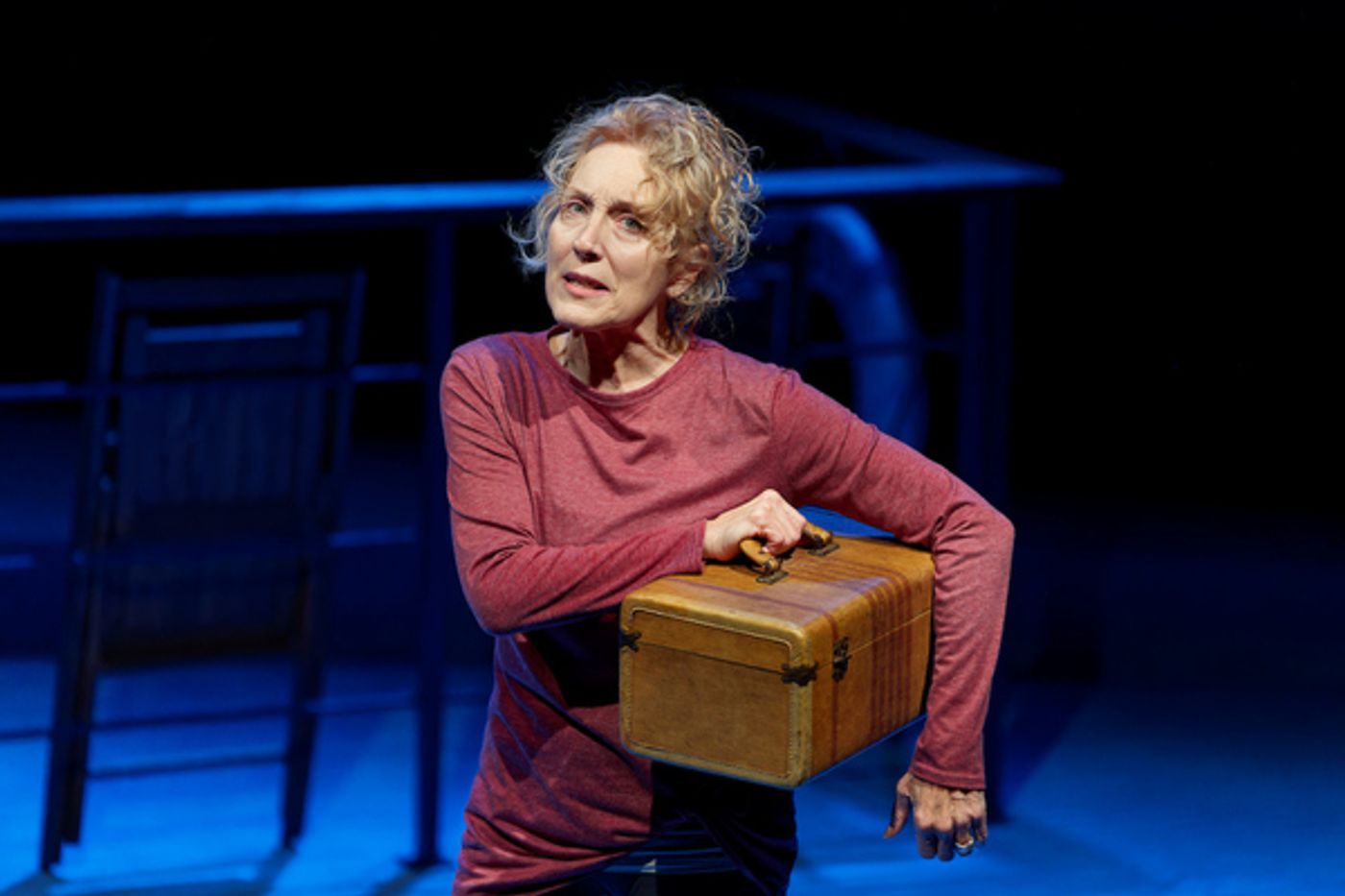
It's a stellar cast, with several old favorites and a few new faces. Peter Mayer and Kari Ely do splendid work as the Captain and Susan (though both, a time or two, emote moments of grief when understatement would have been more effective).
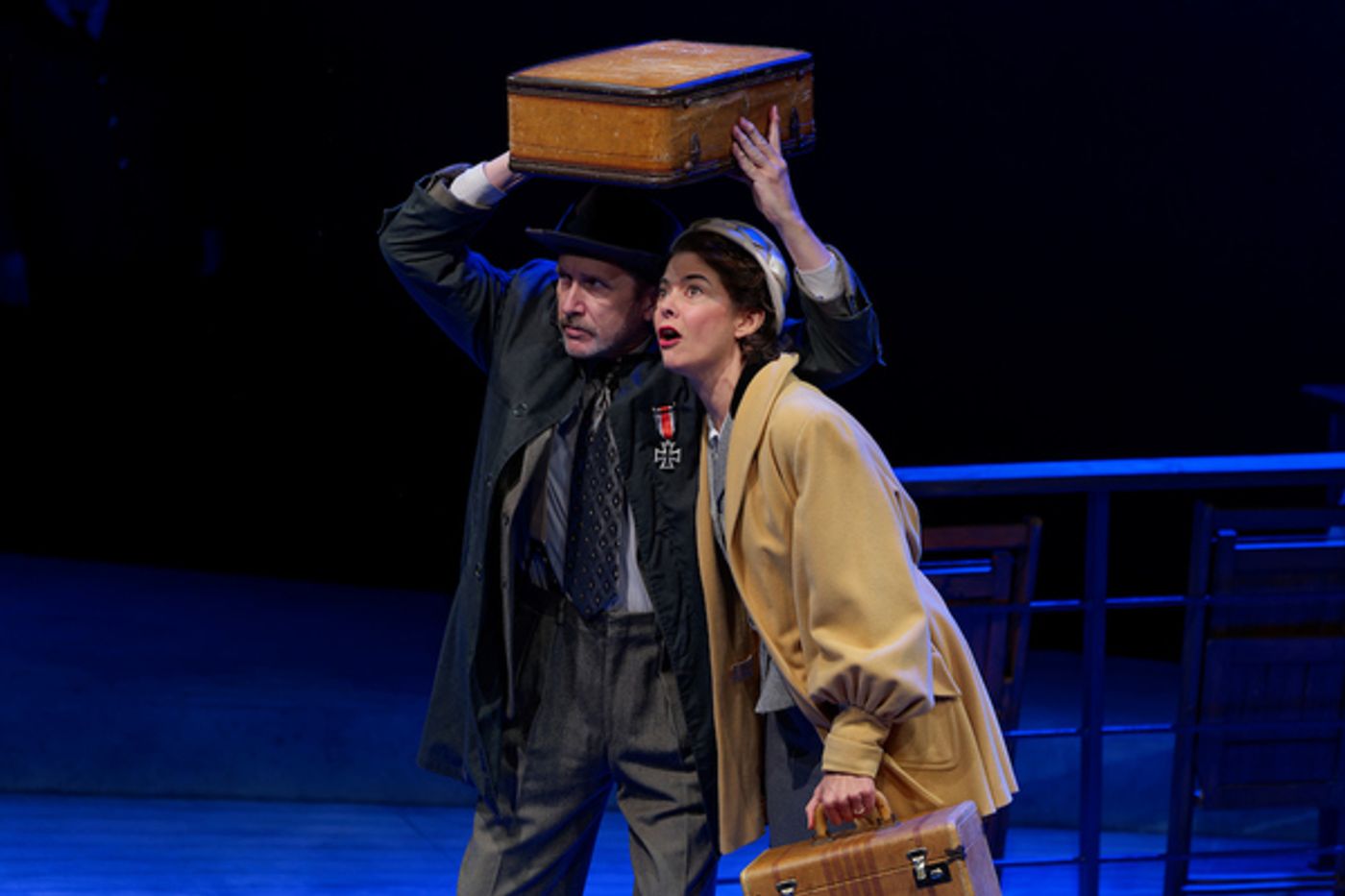
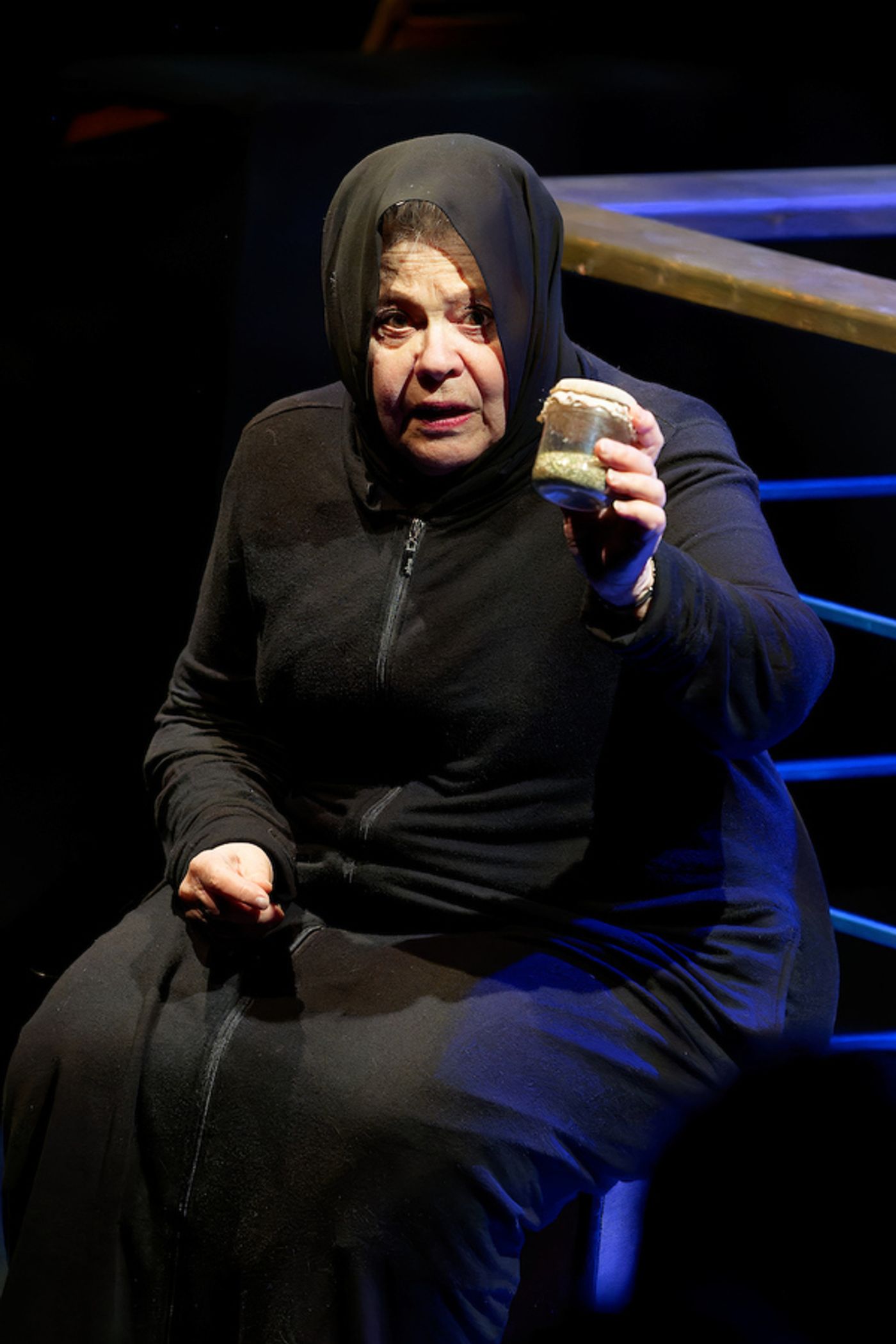
Jeff Cummings and Nancy Bell are so natural, so believable as the youngish couple. Their final separation is heartbreaking.
Kathleen Sitzer irritates us properly as the demanding rich lady, then, in stark contrast, becomes a poor widow from Syria who is left with nothing but her memories of the spices and the oranges.
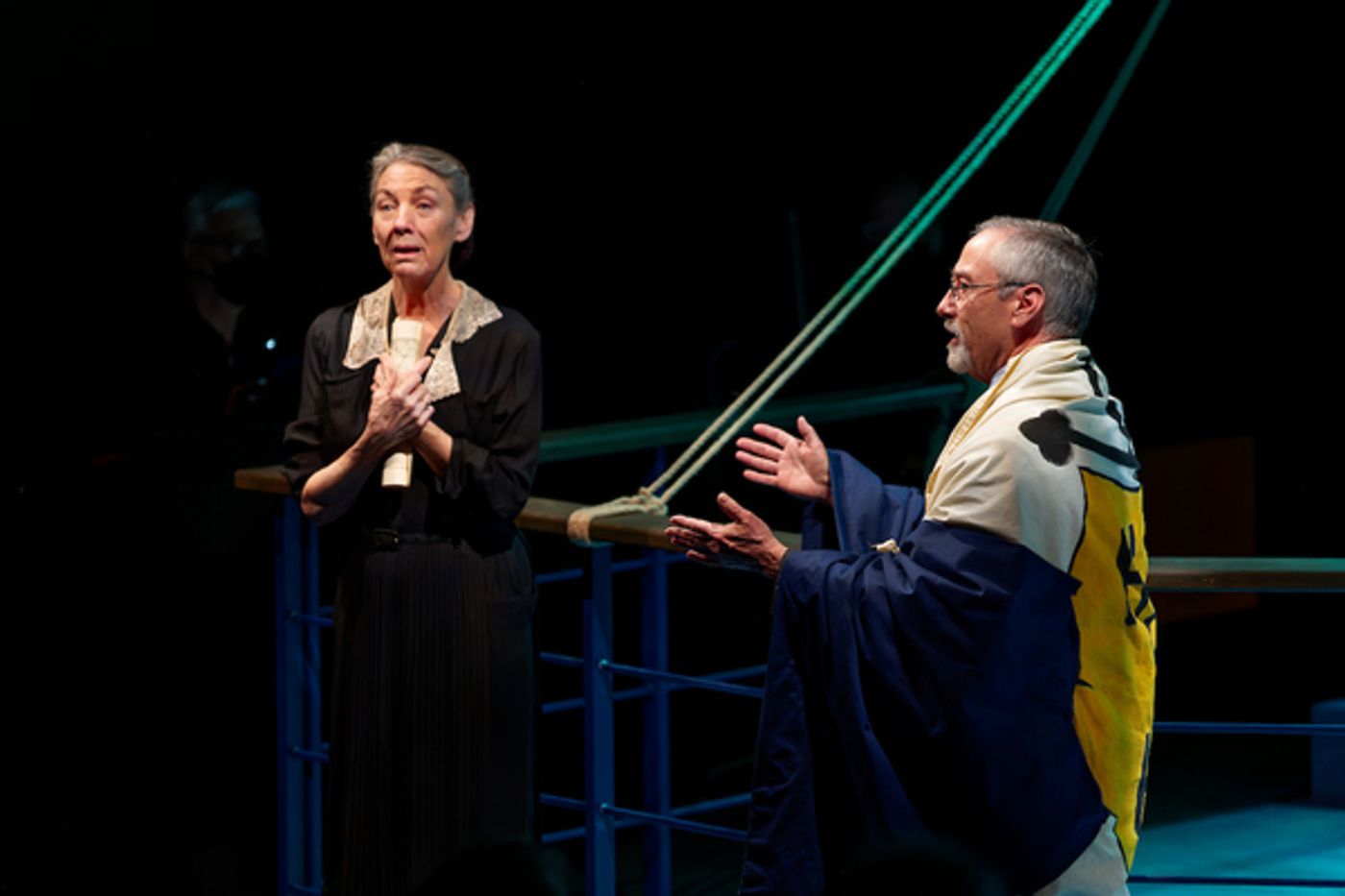
Sarah Burke shows distinctive grace-and fine diction--as an elderly woman whose husband, the professor, dies on the voyage--and also as a former Latin teacher from the Ukraine. Tom Wethington does fine work as the sports-page reader and as the dead professor drifting mystically in the deep, wrapped in a flag. The cruel Nazi steward is really a caricature role, but Christopher Hickey gives it a strong performance. And his singing voice is superb. Eric Conners has for some years been one of my favorite actors; here, as the nice steward and in several other roles he displays amazing versatility, a real gift for accents, and a truly beautiful singing voice.
Miranda Jagles Felix plays the various waitresses-and at the end she does meltingly beautiful work with a monologue--from the peace beyond the grave. It's mostly in Spanish, but who cares? Her voice, her delivery, her Spanish-are so beautiful that it all becomes music.
For thousands of years there have been refugees--as long as humanity has been troubled by disasters, human and natural. Droughts, floods, earthquakes, hurricanes, and those familiar old Horsemen (Death, Famine, War, and Pestilence) have driven tribes and peoples across political and linguistic boundaries--fleeing death and seeking life--and stirring war. Just as we have a biological gene pool, so also we have a cultural one. For eons floods of refugees have swept to the corners of the world, merging their genes into the other gene pools, and merging "memes" of their culture into other cultures. Thus, biologically, our immune systems are enriched and strengthened. Likewise, culturally, our languages, our religions, our cuisines, our arts become richer, stronger. The experience of catastrophe brings suffering and grief-often death, often betrayal, but also heroism and perhaps the joy of survival. All of these are mysteriously passed into future generations-just as, in this story, the pain and love and suffering and beauty of the lives we watch on the Good Ship St. Louis are passed from German Jews to Irish-Americans.
I adore Klezmer music. I treasure Mexican food. Ganesha is my secret charm. So many refugees, fleeing so many catastrophes have made me the run-of-the-mill German/Irish/Osage/Scottish/French/American mongrel that I am. It's a happy thing to be.
The Good Ship St. Louis is a gracefully done piece. My congratulations to all.
(Photos are by ProPhotoSTL.com)
Reader Reviews

Videos

